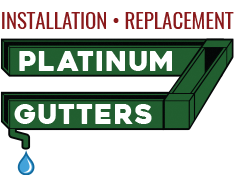
For most homeowners, gutters aren’t thought about on a daily basis. In fact, when it comes to our gutters, the expression “out of sight, out of mind” is usually quite fitting—that is, until disaster strikes and we notice a particular problem, such as leaking. Leaky gutters are one of the worst culprits of home damage, and if water isn’t diverted properly away from your home, you’re in for an unpleasant situation that can be quite costly to repair. That said, here’s what you need to know about some of the potential causes for leaking gutters, along with how the issue is best handled.
What Can Cause Gutters to Leak?
It’s rather easy to identify a leaking gutter; if you walk around your home after it rains and notice water falling from your roof where it shouldn’t be, chances are, there’s an issue with your gutter system! You can also check for stains on siding or walkways and check your basement or first floor for any signs of leakage, such as excess dampness.
However, determining the cause of a leaking gutter might take some amateur detective work and close inspection. Here are a few of the most common causes of leaking gutters:
- Clogs – Over time, your open gutters will become filled with leaves, twigs, and other debris, which can all inhibit the flow of water. With no place to go, this water can run over the sides of your gutters, drip down your siding, and pool around the base of your home, causing all sorts of issues.
- Holes and gaps – An effective gutter system will be free of holes and gaps. Over time, gutters can corrode which can lead to these issues; fortunately, they can be sealed, or if necessary, the gutter section can be replaced.
- Loose hangers – Most gutters are secured to your home using internal hidden hangers; however, these can become loose over time, and as a result, the runoff water can flow over the rear edge of the gutters and damage your fascia boards.
- Improperly pitched gutters – To ensure that water flows away from your home, your gutters must be pitched, or aligned, properly. If they become clogged, your gutters can begin sagging and prevent ideal water movement.
- Separated joints – Sometimes the joints connecting your gutters and downspouts can become separated, causing the areas to catch both debris and water that can result in corrosion and deterioration, sometimes even beyond repair.
How Should I Address My Leaking Gutters?
If you’ve noticed that your gutters are leaking, it’s not an issue that will magically resolve on its own. Depending on the nature of the leak and the extent of the damage, it’s sometimes possible to seal up any holes or gaps, realign certain sections, and repair any minor damage to the gutter system. However, in cases where the damage is severe, your gutters might need to be replaced entirely—which is part of why regular maintenance and upkeep are so important, as is knowing how to identify leaks in a timely manner! In any case, counting on a reliable team of professionals for gutter repair and installation will set your home up for a prosperous (and dry) future!
About Platinum Gutters
Under the leadership of DFW locals Karl and Marjorie Pickens, the talented team at Platinum Gutters has proudly served homeowners all across the metroplex for over 15 years. If you have any questions about the article or you’d like to contact the team to schedule an inspection and estimate, don’t hesitate to contact their team online or over the phone today! Telephone: (817) 993-4125.

